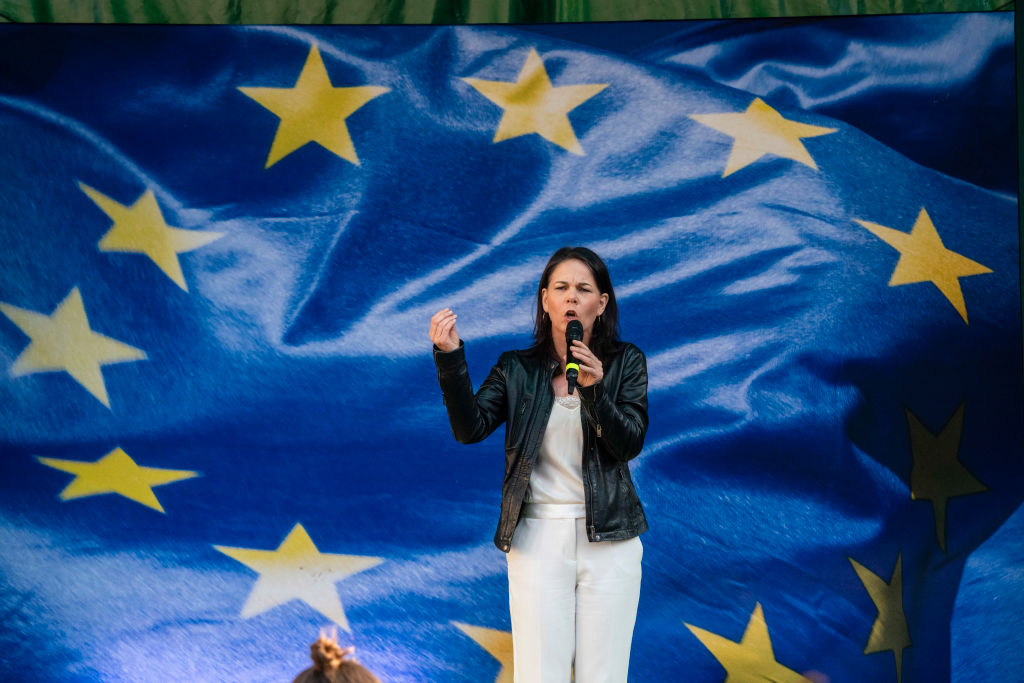The success of the European elite’s most ambitious project looks even more remote after Sunday’s EU parliamentary elections: the Green Deal is a luxury policy it can no longer afford.
On Sunday the green vote receded from its peak in 2019, when green parties took 20.5% of the share. Despite the mobilisation efforts of operations such as Generation Climate Europe, the young are losing interest: green parties recorded 11.9% of the under-30 vote, and the figure is even lower for first-time voters aged 16-24.
As researcher Ben Pile pointed out at the time, the greens’ high tide in 2019 was an outlier, and largely concentrated among affluent nations. When economic concerns rise to the fore, enthusiasm for utopian environmentalism recedes.
This is bad news for the European Union’s flagship Green Deal, an umbrella of regulations and subsidies which comprise its radical industrial policy. This was never going to be cheap: McKinsey estimates the cost of transitioning away from hydrocarbons globally to be $275 trillion, or 7.5% of annual GDP. The Commission was able to raid Covid recovery funds for around €270 billion, but the aim of creating a European Sovereignty Fund looks more elusive than ever after the weekend.
Worse, implementation costs have risen steeply, hitting renewable energy projects particularly hard. For example, Denmark is realising that wind is no longer affordable, now that capital costs have risen 30%. Europe can’t compete with President Biden’s aggressive Inflation Reduction Act and its $110 billion package of subsidies — “investments” — and grants. These were luxury beliefs, for a luxury era.
Despite tempering the deal, the reality is that a forced march from hydrocarbons is not popular. Act II, which determines policy after 2030, now looks in peril.
Externally, the pressure is on too: a newly invigorated and ambitious Brics alliance, which since the start of the year has included Iran, the UAE, Saudi Arabia and Argentina — the latter anticipating a hydrocarbon-powered industrial renaissance thanks to its Vaca Muerta shale formation. None of the Brics members are inclined to get in the way of an EU so committed to inflicting self-harm.
Perhaps it was always too ambitious. Just as capitalism contains the seeds of its own destruction, as Marx wrote, so does aggressive environmentalism. With climate change, environmentalists devised an instrument to measure human sin, in effect allowing them to impose metric-driven requirements across a wide range of human activity: from food, to mobility, to housing and work.
However, in the 21st century, we remain reliant on either extracted or synthetic hydrocarbons for much of modern existence; even if energy production were 100% hydrocarbon-free, we would need to synthesise them for fertilisers, medicine and many other technological processes. The substitutions are poor and costly. Which in turn means that every aspect of life under the Green Deal becomes that little bit greyer, duller or more unpleasant for the voter. Insulation is a vivid example.
At Berlaymont, where the European Commission devises its policies, the technocrats may take some comfort from the inchoate nature of the new populist revolt. It remains largely focused on capturing disquiet about mass immigration, not detailed energy policy or building regulations. While street protests have taken place, from the gillet jaunes to the more recent pan-European farming protests, the groundwork for a coherent opposition to aggressive climate change mitigation policies has yet to be laid.
But the warning signs are there. One of the founders of Germany’s green movement, Fritz Vahrenholt, likes to quote a German idiom: “A donkey goes onto the ice until it breaks.” Now, it would seem, those cracks have appeared.

